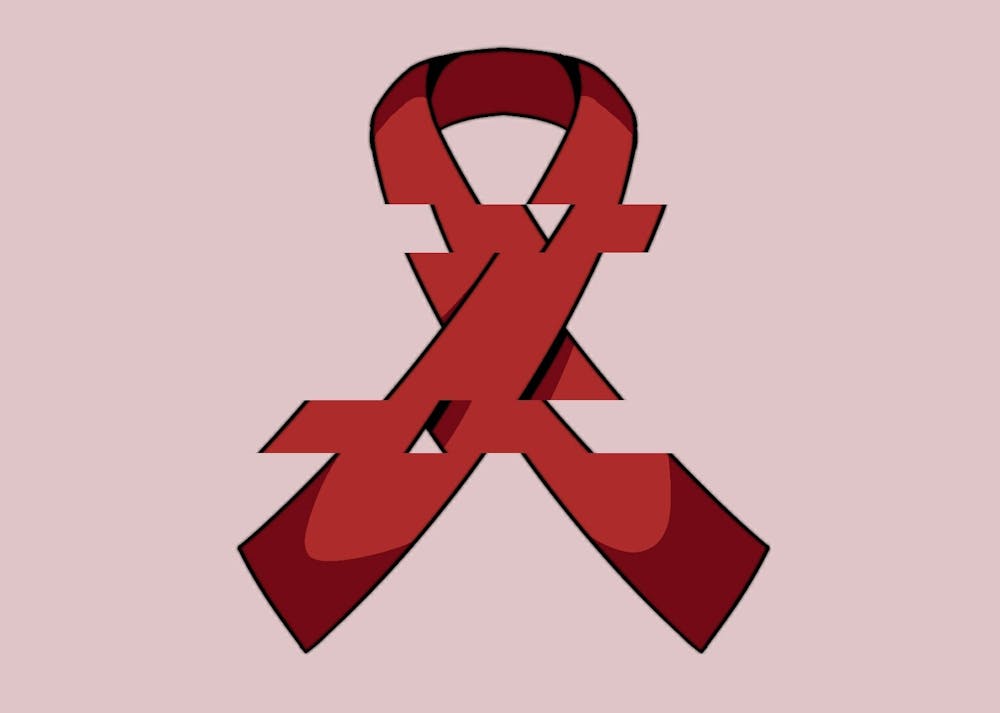A false rumor of there being an HIV outbreak on ASU's Tempe campus has spread across social media, originating on the anonymous message board app Yik Yak, with the misinformation making its way to Twitter, TikTok and beyond.
This rumor has been refuted by ASU Health Services as incorrect, and experts say the spread of conspiracies on social media is dangerous for individuals living with HIV, as well as the entire ASU community.
"There is no HIV outbreak. False rumor. The university does track all public health communicable diseases," said Gerardo Gonzalez, an ASU spokesperson, in an emailed statement.
User-generated media across social media platforms Tik Tok, Twitter and Reddit have only worsened the spread of disinformation which originated on the Yik Yak app.
The virality of false information such as the HIV outbreak rumor on ASU's campus brings into question how social media harmfully spreads falsehoods.
"In moments when people feel like there isn't information — rumor, conspiracy, misinformation (and) disinformation thrive," said Anna Muldoon, a public health expert and a Ph.D. student in the School for the Future of Innovation and Society.
And worse, misinformation, like this one concerning HIV, "is intensely stigmatizing for the people who do have it," said Muldoon, co-author of "COVID-19 Conspiracy Theories."
Muldoon researches how conspiracy theories surrounding infectious disease outbreaks can spread just as fast and sudden as the disease itself.
During moments of crisis, "everyone is grasping for any piece of information they can get, so you end up with wild rumors spreading incredibly quickly," Muldoon said. "Spreading those rumors may be hurting people around us who haven't told us their status."
Accessibility to social media platforms — where people can freely share opinions and ideas — can also contribute to expedited widespread of misinformation and mass panic, experts said.
Kristy Roschke, managing director of the News Co/Lab at the Walter Cronkite School of Journalism and Mass Communication, explained the role such platforms play in the widespread reach of rumors.
"(Before social media), there was a filtering mechanism for information and there's just no filter anymore," Roschke said.
Student and national news organizations also face the difficulty of reporting on such subjects — often on social media platforms — with the task of debunking them without furthering the virality of the story, Roschke said.
For students and others questioning the validity of public health conspiracies, there are several resources available beyond social media, Muldoon said. Calling the county health department, getting a test and educating oneself on preventative measures for STIs are all beneficial.
ASU Health Services offers testing for any STI for $20 through a subsidy via the health fee, allowing students to pay cash in order to avoid using their guardian's insurance.
"The good news for students here is that if they test positive for HIV, we are able to start treatment right away, if that's what they want, and also give other support counseling when students want it," one example being the student group Devils in the Bedroom, said Aaron Krasnow, associate vice president of ASU Health and Counseling Services.
Advancements in HIV treatments have made the virus much more manageable than it once was, said Muldoon.
According to the Centers for Disease Control and Prevention, those with HIV who take treatment and have an undetectable viral load pose "effectively no risk" to their sexual partners.
"Every time something like this happens it makes it harder for people who are living great lives with HIV to talk about it because they see this social reaction," Muldoon said. "It makes it harder for them to be able to talk to their friends about what's going on with them."
Reach the reporter at opersyn@asu.edu and follow @liv_persyn on Twitter.
Like The State Press on Facebook and follow @statepress on Twitter.
Continue supporting student journalism and donate to The State Press today.




